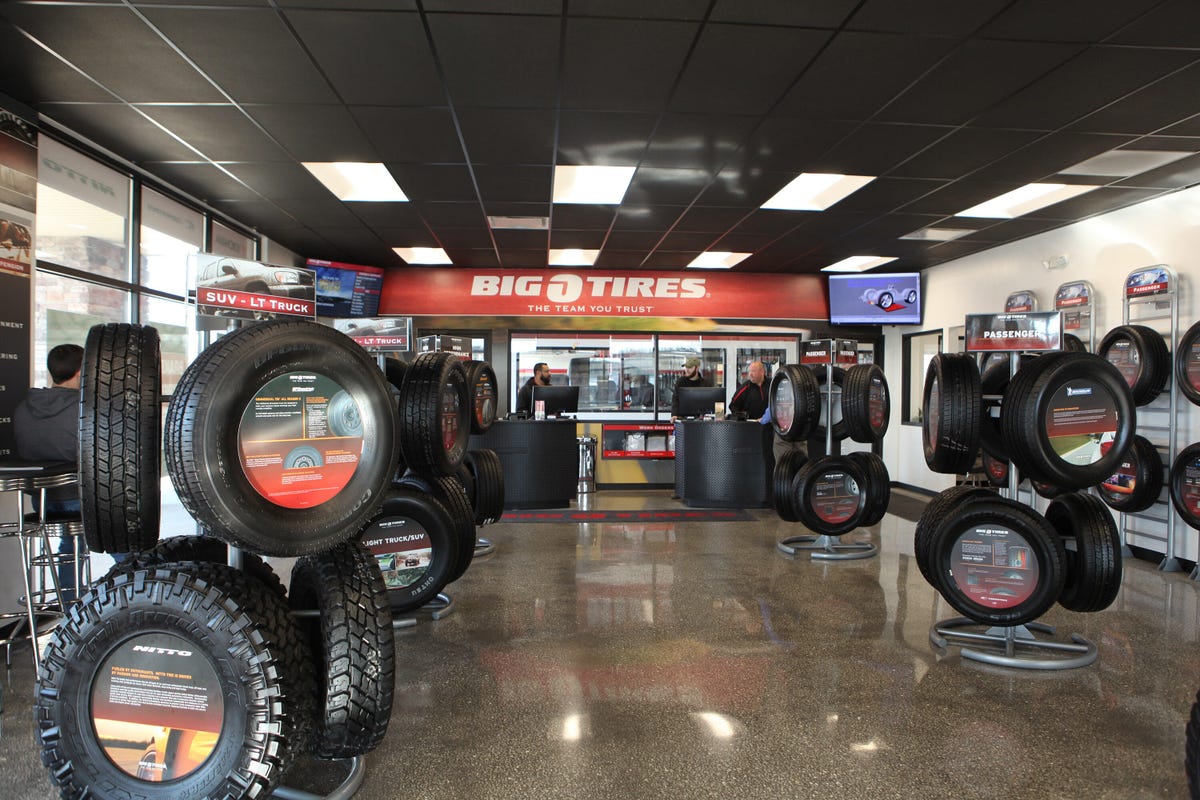The Environmental Benefits of Correct Tire Maintenance
Preserving appropriate tire care is typically ignored, yet its impact on the atmosphere is extensive. Proper tire maintenance not only expands the life-span of tires but likewise lowers garbage dump waste and contributes to boosted air high quality.
Decreased Fuel Intake
Improving tire upkeep practices can lead to a substantial decrease in gas usage for vehicles. According to the United State Department of Energy, underinflated tires can reduce gas mileage by 0.2% for every 1 psi decline in stress in all four tires.
In addition to tire pressure, regular tire turnings and alignments likewise play a vital role in gas performance. Unevenly worn tires can boost fuel consumption as the engine functions harder to preserve speed and grip. By maintaining correct placement and revolving tires at suggested periods, chauffeurs can guarantee also lengthen the life and wear of their tires, ultimately conserving fuel and reducing their carbon footprint.
Extended Tire Life Expectancy
Prolonging the life expectancy of tires is a vital element of effective vehicle maintenance methods that can yield cost financial savings and environmental benefits in the future. By appropriately preserving tires, vehicle drivers can substantially lengthen their usability, reducing the regularity at which new tires need to be manufactured and old ones taken care of. This not only preserves important sources yet also decreases the power and discharges linked with tire production and disposal processes.
Consistently checking tire stress, turning tires, and making sure correct placement are necessary action in prolonging tire life-span. Sufficient tread depth is vital for optimum traction and security, yet it likewise plays a function in for how long tires can be used before requiring substitute. Furthermore, staying clear of aggressive driving habits that accelerate tire wear, such as extreme braking and sharp turns, can further enhance tire toughness.
Inevitably, increasing the long life of tires via positive upkeep not just benefits the atmosphere by lowering waste and saving resources however additionally results in set you back financial savings for automobile proprietors by postponing the need for brand-new tire purchases.
Reduced Discharges Result
Reliable tire maintenance practices add to a decrease in exhausts output, aligning with ecological sustainability goals in the automobile industry. By preserving optimum tire pressure degrees, chauffeurs can assist minimize these adverse environmental influences.
Moreover, well-kept tires likewise improve grip and reduce rolling resistance, additionally improving gas performance. This, in turn, lowers the quantity of exhaust gases launched right into the environment. Furthermore, making certain tires are correctly blown up and aligned can extend the life-span of the tires, reducing the regularity of tire replacements and the connected environmental expenses of tire manufacturing and disposal.

Decreased Garbage Dump Waste
Offered the positive influence of appropriate tire maintenance on lowering exhausts result, one more significant environmental advantage is the capacity for decreased garbage dump waste. By making sure that tires are properly inflated, lined up, balanced, and revolved on a regular basis, their life expectancy can be dramatically expanded.

Improved Air Quality
Enhancing this content air high quality via proper tire maintenance practices is a crucial aspect of lasting environmental stewardship. When tires are underinflated, they create much more rolling resistance, bring about increased gas intake and higher emissions of harmful toxins such as carbon monoxide gas and nitrogen oxides. Properly inflated tires not only improve fuel efficiency yet also minimize the amount of pollutants launched into the air.
Additionally, well-kept tires with correct step deepness and alignment add to much safer driving problems, minimizing the chance of crashes that can you can try this out result in the release of additional contaminants into the environment. By prolonging the life-span of tires via routine maintenance and rotation, fewer tires are discarded too soon, decreasing the environmental influence of tire disposal and production procedures.
Final Thought
In final thought, correct tire maintenance offers various environmental benefits. By reducing gas consumption, extending tire life-span, decreasing exhausts result, decreasing garbage dump waste, and enhancing air quality, people can add to a much healthier planet. These efforts not only benefit the setting but also assist to conserve resources and reduce total ecological influence. It is crucial for individuals to prioritize tire maintenance as a straightforward yet effective method to shield the setting for future generations.
Appropriate tire upkeep not just extends the life expectancy of tires but also lowers garbage dump waste and contributes to improved air quality - morris tire. By preserving appropriate positioning and turning tires at recommended intervals, drivers can ensure also put on and lengthen the life of their tires, inevitably conserving fuel and lowering their carbon impact
By properly keeping tires, chauffeurs can considerably extend their usability, lowering the frequency at which new tires need to be manufactured and old ones disposed of.Consistently checking tire pressure, turning tires, and making sure correct positioning are crucial steps this in expanding tire lifespan. Furthermore, making sure tires are effectively blown up and aligned can prolong the life expectancy of the tires, minimizing the regularity of tire replacements and the linked environmental expenses of tire manufacturing and disposal.